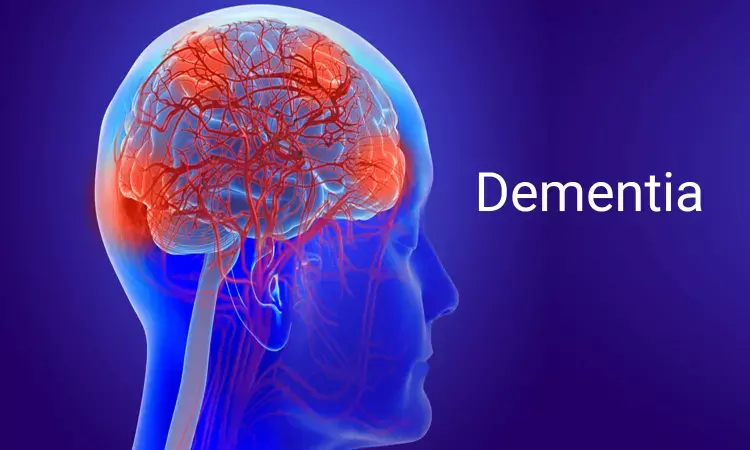- Home
- Medical news & Guidelines
- Anesthesiology
- Cardiology and CTVS
- Critical Care
- Dentistry
- Dermatology
- Diabetes and Endocrinology
- ENT
- Gastroenterology
- Medicine
- Nephrology
- Neurology
- Obstretics-Gynaecology
- Oncology
- Ophthalmology
- Orthopaedics
- Pediatrics-Neonatology
- Psychiatry
- Pulmonology
- Radiology
- Surgery
- Urology
- Laboratory Medicine
- Diet
- Nursing
- Paramedical
- Physiotherapy
- Health news
- Fact Check
- Bone Health Fact Check
- Brain Health Fact Check
- Cancer Related Fact Check
- Child Care Fact Check
- Dental and oral health fact check
- Diabetes and metabolic health fact check
- Diet and Nutrition Fact Check
- Eye and ENT Care Fact Check
- Fitness fact check
- Gut health fact check
- Heart health fact check
- Kidney health fact check
- Medical education fact check
- Men's health fact check
- Respiratory fact check
- Skin and hair care fact check
- Vaccine and Immunization fact check
- Women's health fact check
- AYUSH
- State News
- Andaman and Nicobar Islands
- Andhra Pradesh
- Arunachal Pradesh
- Assam
- Bihar
- Chandigarh
- Chattisgarh
- Dadra and Nagar Haveli
- Daman and Diu
- Delhi
- Goa
- Gujarat
- Haryana
- Himachal Pradesh
- Jammu & Kashmir
- Jharkhand
- Karnataka
- Kerala
- Ladakh
- Lakshadweep
- Madhya Pradesh
- Maharashtra
- Manipur
- Meghalaya
- Mizoram
- Nagaland
- Odisha
- Puducherry
- Punjab
- Rajasthan
- Sikkim
- Tamil Nadu
- Telangana
- Tripura
- Uttar Pradesh
- Uttrakhand
- West Bengal
- Medical Education
- Industry
Elevated heart rate linked to increased risk of dementia

Having an elevated resting heart rate in old age may be an independent risk factor of dementia, according to a study at Karolinska Institutet in Sweden published in the journal Alzheimer's & Dementia: The Journal of the Alzheimer's Association. Since resting heart rate is easy to measure and can be lowered through exercise or medical treatment, the researchers believe that it may help to identify people with higher dementia risk for early intervention.
The number of people living with dementia is expected to increase to 139 million globally by 2050, from 55 million in 2020, according to the organisation Alzheimer's Disease International. Currently, there is no cure for dementia, but growing evidence suggests that maintaining a healthy lifestyle and cardiovascular health could help delay the onset of dementia and ease symptoms.
In this study, the researchers examined if resting heart rate in 2,147 individuals 60 years old or older and living in Stockholm could be linked to dementia and cognitive decline independent of other known risk factors, such as cardiovascular disease.
The study, which followed the participants for up to 12 years, showed that individuals with a resting heart rate of 80 beats per minute or higher on average had 55 percent higher risk of dementia than those with a heart rate of 60-69 beats per minute. The association remained significant after adjusting for potential confounders such as various cardiovascular diseases. Still, the researchers caution that the result may have been affected by undetected cardiovascular events and the fact that more participants with cardiovascular disease died during the follow-up period and thus didn't have time to develop dementia.
The study cannot establish a causal relationship, but the researchers offer several plausible explanations for the association, including the effect of underlying cardiovascular diseases and cardiovascular risk factors, stiffened arteries, and imbalance between sympathetic and parasympathetic nerve activities.
"We believe it would be valuable to explore if resting heart rate could identify patients with high dementia risk," says the study's leading author Yume Imahori, a researcher at the Department of Neurobiology, Care Sciences and Society, Karolinska Institutet. "If we follow such patients' cognitive function carefully and intervene early, the onset of dementia might be delayed, which can have a substantial impact on their quality of life."
The study was led by senior lecturer Dr Chengxuan Qiu and the data was derived from the Swedish National study on Aging and Care in Kungsholmen (SNAC-K).
The research was funded by the Swedish Ministry of Health and Social Affairs, the Swedish Research Council, the Swedish Research Council for Health, Working Life and Welfare, the Swedish Foundation for International Cooperation in Research and Higher Education, Karolinska Institutet and the European Union. See the scientific article for declarations of interest.
https://alz-journals.onlinelibrary.wiley.com/doi/10.1002/alz.12495
Hina Zahid Joined Medical Dialogue in 2017 with a passion to work as a Reporter. She coordinates with various national and international journals and association and covers all the stories related to Medical guidelines, Medical Journals, rare medical surgeries as well as all the updates in the medical field. Email: editorial@medicaldialogues.in. Contact no. 011-43720751
Dr Kamal Kant Kohli-MBBS, DTCD- a chest specialist with more than 30 years of practice and a flair for writing clinical articles, Dr Kamal Kant Kohli joined Medical Dialogues as a Chief Editor of Medical News. Besides writing articles, as an editor, he proofreads and verifies all the medical content published on Medical Dialogues including those coming from journals, studies,medical conferences,guidelines etc. Email: drkohli@medicaldialogues.in. Contact no. 011-43720751


